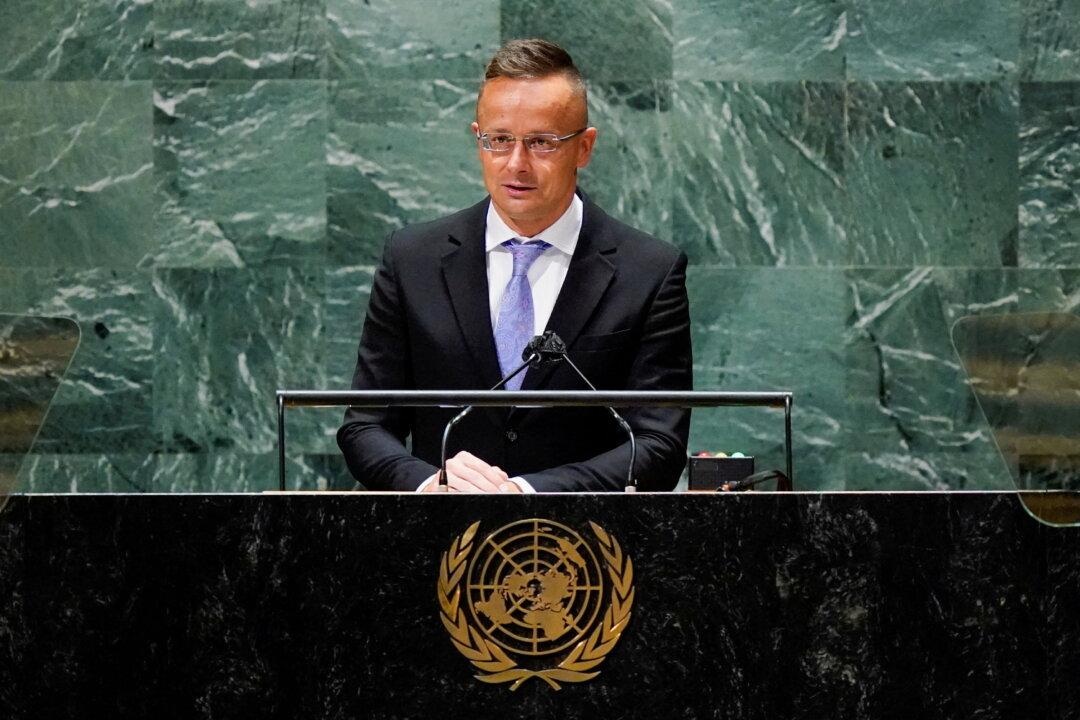The Western strategy for defeating Russia’s ongoing invasion of eastern Ukraine has “failed,” Hungarian Foreign Minister Peter Szijjarto said during a visit to the South Caucasus nation of Georgia.
“Sanctions [on Russia] are not working,” Szijjarto said in remarks to Georgia’s Imedi television channel—later picked up by the local media—on Oct. 29.





